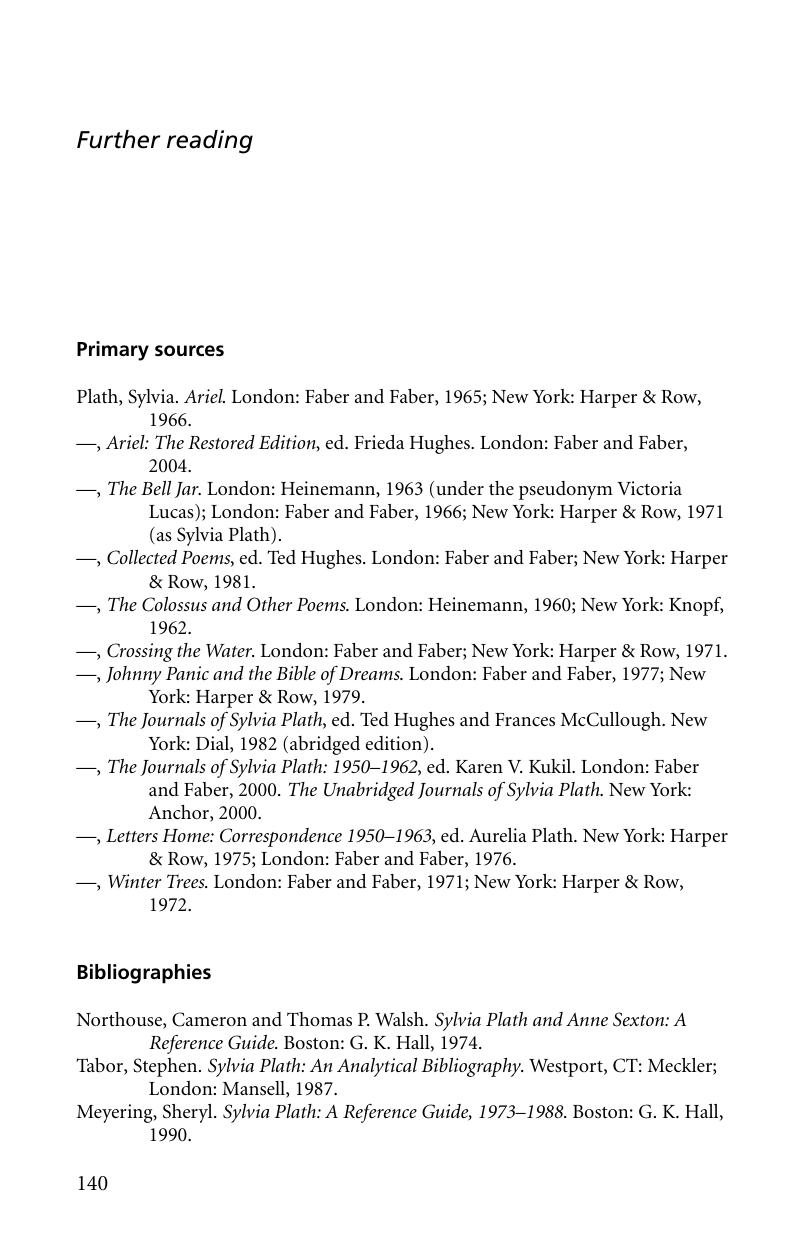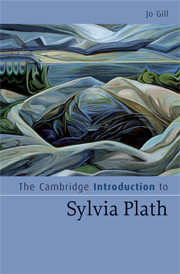Book contents
- Frontmatter
- Contents
- Preface
- Acknowledgments
- Abbreviations and textual note
- 1 Life
- 2 Contexts
- 3 Early poetry
- 4 Ariel and later poetry
- 5 The Bell Jar and Johnny Panic and the Bible of Dreams
- 6 Letters Home and Journals
- 7 Reception
- Notes
- Further reading
- Index
- The Cambridge Introductions to Literature
- References
Further reading
Published online by Cambridge University Press: 05 June 2012
- Frontmatter
- Contents
- Preface
- Acknowledgments
- Abbreviations and textual note
- 1 Life
- 2 Contexts
- 3 Early poetry
- 4 Ariel and later poetry
- 5 The Bell Jar and Johnny Panic and the Bible of Dreams
- 6 Letters Home and Journals
- 7 Reception
- Notes
- Further reading
- Index
- The Cambridge Introductions to Literature
- References
Summary

- Type
- Chapter
- Information
- The Cambridge Introduction to Sylvia Plath , pp. 140 - 145Publisher: Cambridge University PressPrint publication year: 2008



